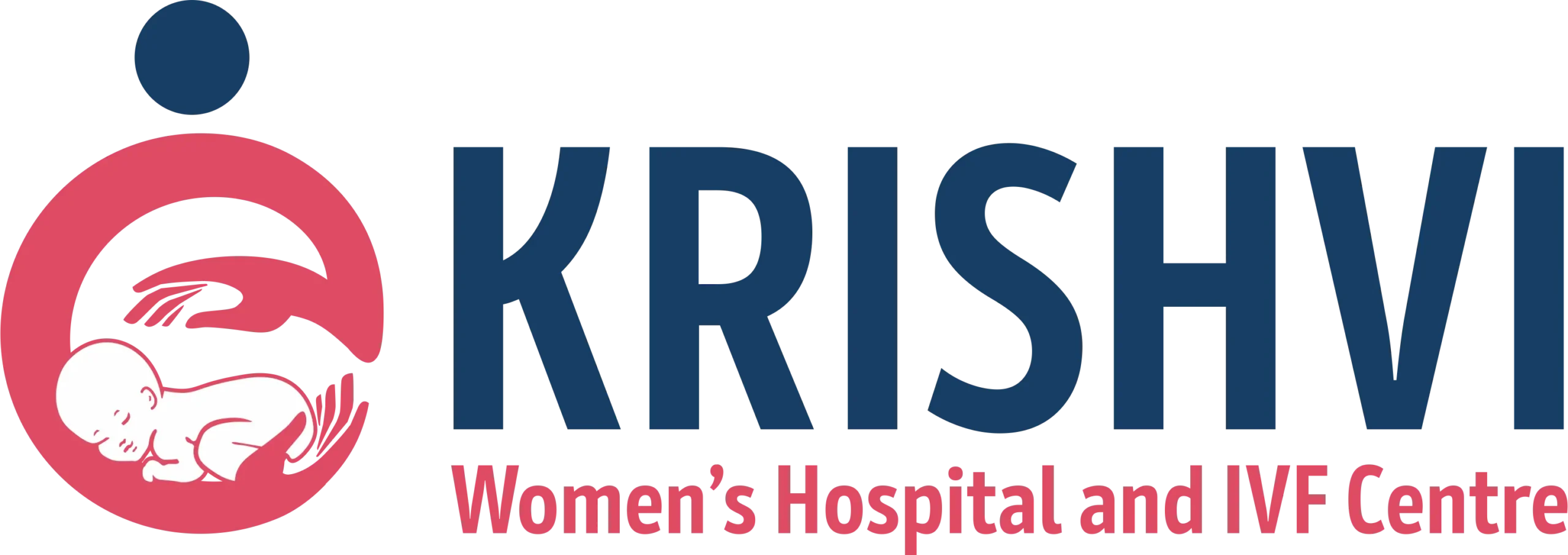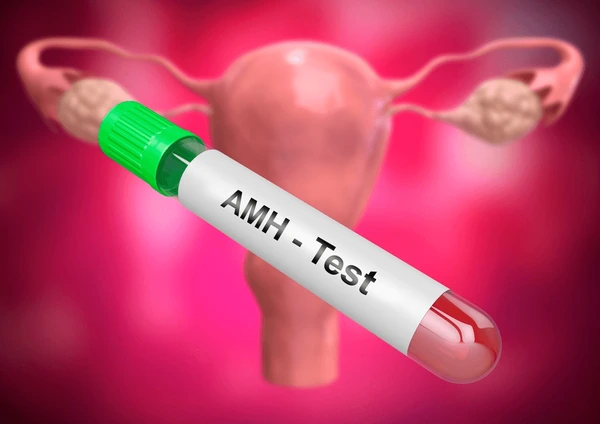What is Low AMH?
Having low AMH levels means that the ovaries are producing fewer preantral follicles. Essentially, AMH levels give us an idea of how many eggs are left in the ovaries. A high AMH level means more eggs are available, while a low level indicates fewer eggs remaining.
It’s normal for AMH levels to decrease as women age. However, if low AMH levels occur in younger women, it can raise the risk of early ovarian failure and lower the chances of conceiving naturally. In India, a survey found that nearly half of 29,621 women aged 20-40 had low AMH levels.
Causes of Low AMH
There are several reasons for low AMH levels. Here are some common factors:
1. Age
Age is a significant factor in low AMH levels. Women are born with all the eggs they will have throughout their lives, and these eggs are gradually used up during ovulation cycles until menopause. As women grow older, their ovarian reserve – and consequently their AMH levels – naturally decreases. By the mid-30s, the number of eggs begins to drop, which can also reduce fertility.
2. Very Poor Diet
A diet high in processed foods and unhealthy fats can negatively impact AMH levels. Eating poorly can lead to obesity and other health issues, which may contribute to lower AMH levels.
3. Endometriosis
Endometriosis is a condition where tissue that usually grows inside a woman’s uterus starts growing outside of it. This can cause significant pain and inflammation in the reproductive system, particularly affecting the ovaries and fallopian tubes, which may lead to low AMH levels.
4. PCOS (Polycystic Ovary Syndrome)
PCOS is a common condition that affects many women. It occurs when the ovaries produce a higher-than-normal amount of male hormones. This hormonal imbalance can lead to the development of small cysts in the ovaries, which can negatively impact AMH levels.
5. Genetic Factors
Sometimes, low AMH levels can run in families due to inherited genetic disorders. If someone in your family has low AMH, it might increase the likelihood that you could also experience this issue.
Autoimmune Diseases
With autoimmune diseases, the body’s immune system mistakenly attacks its own healthy cells, including healthy eggs in the ovaries, which can lower AMH levels.
6. Cancer Treatment or Chemotherapy
For those undergoing cancer treatment, the process can harm healthy ovarian follicles, which can lead to a decrease in AMH levels.
7. Mental Health
Stress and mental health issues can also play a role in low AMH levels. When someone is dealing with mental health challenges, it can affect their chances of conceiving. Taking steps to manage stress and maintain mental well-being is important for anyone trying to get pregnant, as reducing stress may help improve AMH levels.
8. Lifestyle Changes
Various lifestyle factors can influence AMH levels. Things like smoking, obesity, exposure to pollution, and a lack of vitamin D can all contribute to changes in AMH levels. Making healthier lifestyle choices can be beneficial.
Understanding Low AMH Levels
Low AMH levels usually don’t come with specific symptoms, but if you notice general signs like irregular periods, shorter cycles, or symptoms of early menopause, it’s a good idea to talk to your doctor.
Low AMH and Fertility Challenges
AMH, or Anti-Müllerian Hormone, gives insight into a woman’s ovarian reserve, meaning how many eggs she has left. However, it doesn’t directly cause infertility. As women age, their fertility naturally declines, and this drop in fertility is linked to decreasing AMH levels.
The number of eggs a woman has is crucial for conceiving. If a woman has fewer or no eggs, her chances of getting pregnant are lower. Additionally, lower AMH levels can affect the quality of the eggs, which could lead to a higher risk of miscarriage or issues with fertilization. Therefore, it’s often recommended that older women with low AMH levels pursue proper treatment.
Interestingly, younger women with low AMH levels still have a better chance of getting pregnant compared to older women. A survey indicated that over 38% of women aged 26-30 had significantly low AMH levels. If you get a blood test done, the AMH levels will primarily inform you about the potential number of follicles in your ovaries.
Options for Low AMH Levels
If you find out you have low AMH levels, there are several options available, but figuring out what’s best for you can be tricky. It’s advisable to consult your doctor. A low AMH level from a blood test doesn’t mean you should panic; in fact, you may be able to improve your levels naturally with some lifestyle changes.
If you’re concerned about your AMH levels, consider reaching out to Dr. Jay Mehta, a fertility specialist in Mumbai, for more personalized advice on your fertility options.
What to Expect During a Doctor’s Visit for Low AMH Levels
For women who want to conceive but have low AMH levels, doctors often recommend IVF (In-Vitro Fertilization) as a viable option. There are also other treatments available, such as ART (Assisted Reproductive Technology).
In addition to AMH blood tests, doctors might suggest further fertility assessments, including the FSH (Follicle Stimulating Hormone) test and the AFC (Antral Follicle Count) test. Sometimes, healthcare professionals encourage a healthy lifestyle to improve egg quantity and potentially raise AMH levels.
Treatment for Low AMH Levels
While there’s no definitive cure for low AMH (Anti-Mullerian Hormone) levels, there are several approaches that women can take to potentially improve their AMH levels before considering assisted reproductive technology (ART) options. Some natural methods to enhance AMH include:
– Practicing yoga and staying active with regular exercise.
– Eating a balanced diet rich in nutrients.
– Considering acupuncture as a complementary therapy.
– Taking DHEA (Dehydroepiandrosterone) supplements, which may help improve both the quality and quantity of eggs produced.
If you’re a younger woman hoping to conceive, there are treatment options like IVF (In Vitro Fertilization) using your eggs or IVF using donor eggs.
IVF for Low AMH Levels
The success of a pregnancy often hinges on a woman’s ovarian reserve, or the number of eggs remaining in her ovaries. For those with low AMH levels, IVF can be an effective option, allowing for the optimal use of the limited eggs available.
If a woman has elevated FSH (Follicle-Stimulating Hormone) levels alongside low AMH, it may indicate that her ovaries are not producing enough high-quality eggs, which can affect fertility. However, leading a healthy lifestyle and taking DHEA supplements might still support her chances of achieving pregnancy via IVF.
IVF with Donor Eggs
This option is best suited for women with very low AMH levels who have no viable eggs left. If IVF fails to retrieve good-quality eggs from a woman’s own ovaries, using a donor egg can be the solution. In this process, a high-quality egg from another woman is used to perform IVF.


